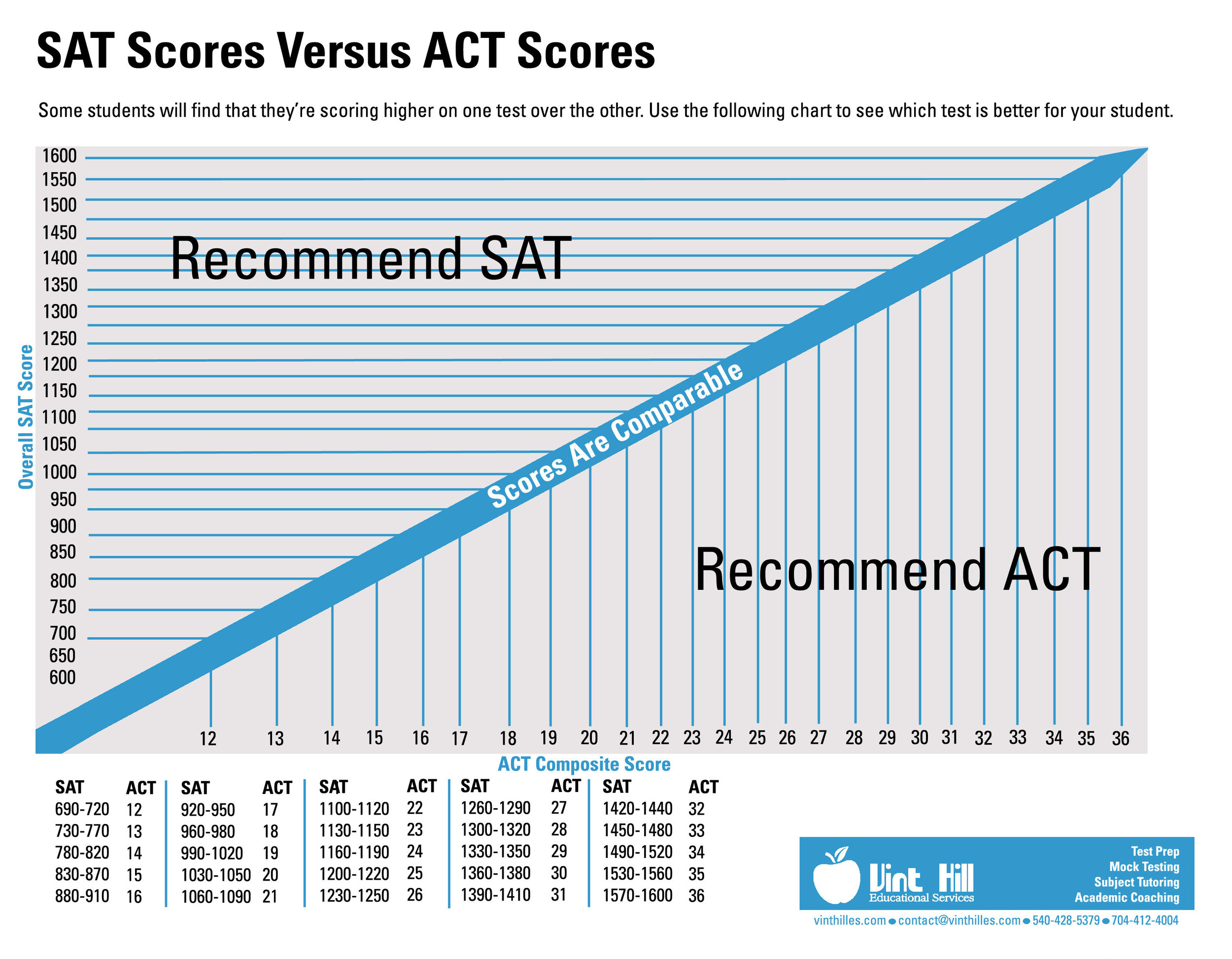Strategies for the SAT Math Section
The SAT remains an important aspect for most college admissions processes, and schools use it as one factor to determine a student’s college readiness. It can even help students qualify for merit scholarships. There are a lot of reasons why you should do your best on this test, so we’ve compiled some of our expert advice to help you improve your score on the math portion, which goes from easiest to hardest.
Focus on a single question – Take it easy and relax. Don’t worry about the next 20 questions. You may feel the need to rush and that’s normal. If you’re patient, you will work faster and produce better results.
Utilize a two-pass approach – Answer all questions that you can on your first pass through. Each question is worth the same point. Don’t let one question suck up your time. Circle the question and move on to the next. Tip: The first set of grid-in questions is easier than the last handful of multiple-choice questions. If you’re having trouble, go ahead and skip to the grid-in questions. On your second pass, go back to the first question you circled. Use everything in your math toolbox and answer the ones first that you’re most comfortable with. Within the last 30 seconds, answer the remaining multiple-choice questions that are blank (bubble in any answer) and write down an answer for the grid-in questions. There is no point deduction for incorrect answers!
Use the process of elimination – Look to eliminate answer choices and you’ll have a better chance in getting the question correct. Consider values in the problem and use logic to your advantage.
Draw in your test book – Test booklets include extra white space. Use the space around the problem and to the sides. Write down steps, draw a chart, label the sides of shapes, and strike out incorrect answers. You can even rewrite important numbers or phrases. This helps reduce careless mistakes and justifies answers.
Don’t erase computations in your test book – This is a big waste of time. You can cross out calculations that you no longer want to consider. This is faster than trying to erase with your pencil, especially if you’ve written out a long formula.
Information that is irrelevant – On occasion, you’ll find that a certain SAT math question contains information that is not required. This piece of information doesn’t have anything to do with solving the problem. This can make students second guess themselves. If you’ve solved the problem without using the piece of information in question; chances are that you’ve solved the problem correctly. Put a star or X next to information that may not be required.
Re-check your work, but do it efficiently – Perform a quick spot check after each section. It’s better to do this at the end of each problem then at the end of the entire section. The SAT contains “attractor answers” that lure students into picking a false answer. They seem correct to the student because the student doesn’t fully understand the problem. Tip: Use your calculator to verify the answer. Plug in the answer to see if it fits into the equation. Make sure you answered the question correctly and not just a step towards finding the answer.
Turn algebraic expressions into solid numbers – Most of the SAT math problems can be solved by picking your numbers for certain variables. It’s good to know what types of questions can be solved this way. This approach works well with problems that have variables as their answer choices. When you pick your own numbers, you’ll be able to turn algebraic expressions into solid numbers. For example, a problem involving minutes or seconds, you might try utilizing the number 60.
Plug in answer choices – Plugging in numbers is a useful SAT math strategy. Try solving a problem in the reverse direction, by plugging in the provided answer choices. Doing so, will help tackle the more difficult questions. Plugging in is also beneficial on word problems.
Don’t forget about your calculator – Your calculator is only allowed on one of the two SAT math sections. About half of the questions on the calculator allowed section really require one. The calculator will find graphing points for you and take care of fractions. The best calculators approved by the College Board will let you compute trigonometric functions and setup graphing plots. Check the College Board website calculator policy section for more details.
Grid-in questions – There are 13 total grid-in questions. Grid-in questions progress from easy to difficult. Students should always answer the easier grid-ins before attempting the more difficult grid-ins. Make sure the ovals are filled in correctly. Grid-in answers will never be a negative number. Some grid-in questions have more than one correct answer. The student must enter in mixed numbers as improper fractions or decimals. Always start with the far left grid-in column!
___________________________________________________________________
Prep with us for a spring ACT or SAT and receive 3 one-to-one test prep hours for free. Please contact us to learn more.
We are here to support! As we handle the academics, this gives you time to ensure they are ready for “the world”. See our website for more info on tutoring and test prep during the pandemic.
















